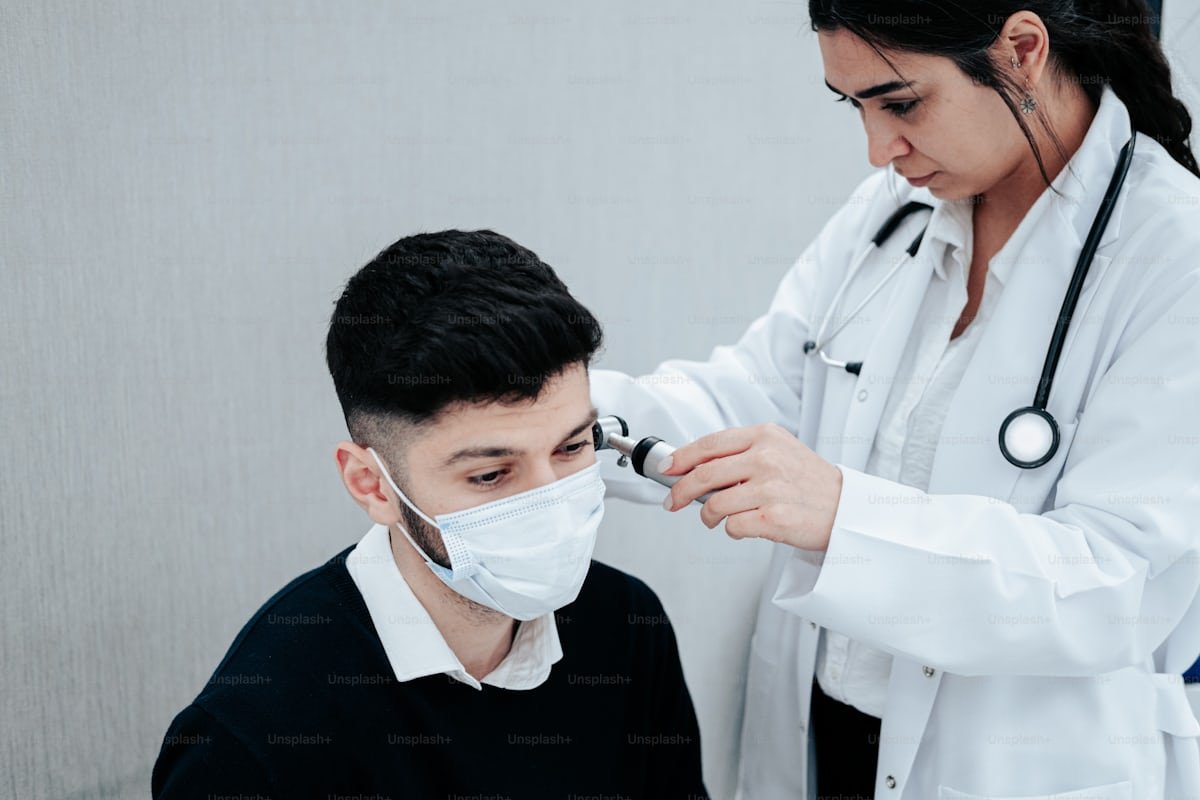Health
Ball Tea: The Chewy, Trendy Drink Taking Over the World

Have you ever sipped a drink so fun that it comes with edible “balls” at the bottom? If not, you’re missing out on ball tea—the playful, chewy beverage that’s captivating taste buds globally.
Also known as bubble tea, boba tea, or pearl milk tea, ball tea gets its name from the tapioca pearls (or “balls”) that sit at the bottom of the cup. These soft, gummy-like spheres add a unique texture, making every sip an experience.
But why is it called ball tea specifically? Unlike “bubble tea,” which refers to the drink’s frothy bubbles when shaken, “ball tea” highlights the tapioca pearls’ round, ball-like shape. In some regions, especially in Asia, this term is just as common as “boba.”
In this guide, we’ll explore:
✔ The origins of ball tea and how it became a global craze
✔ The different types of “balls” used (tapioca, popping boba, jelly)
✔ How to make authentic ball tea at home
✔ Healthier ways to enjoy this sweet, chewy drink
Ready to dive into the world of ball tea? Let’s get started!
The History of Ball Tea: From Taiwan to Your Local Café
Ball tea was born in Taiwan in the 1980s, where tea shops experimented with adding tapioca pearls to sweetened milk tea. The idea was simple: Why not make drinking tea more fun with chewy, edible balls?
Two tea houses claim its invention:
- Chun Shui Tang – Says they first mixed cold milk tea with black tapioca pearls in the late ’80s.
- Hanlin Tea Room – Argues they created a similar version using white tapioca balls around the same time.
Regardless of who did it first, the concept exploded in popularity. By the 2000s, balltea had spread across Asia, North America, and Europe, becoming a staple in trendy cafés.
Not All “Balls” Are the Same: Types of Pearls in Ball Tea
One of the best things about balltea is the variety of “balls” you can add. Here’s a breakdown of the most popular types:
1. Classic Tapioca Pearls (Black Boba)
✔ Made from tapioca starch (extracted from cassava root)
✔ Chewy, slightly sweet, and soaked in syrup
✔ The most traditional “ball” in balltea
2. Popping Boba (Juice-Filled Balls)
✔ Burst with fruit juice when bitten
✔ Come in flavors like mango, strawberry, and lychee
✔ A fun, modern twist on classic boba
3. Crystal Boba (Clear Tapioca Balls)
✔ Made with agar or konjac for a jelly-like texture
✔ Often used in fruit teas for a lighter feel
4. Mini Pearls (Tiny Tapioca Balls)
✔ Smaller than regular boba
✔ Easier to drink with a straw
✔ Great for beginners
5. Flavored & Colored Boba
✔ Infused with matcha, taro, or brown sugar
✔ Adds extra taste and visual appeal
How to Make Ball Tea at Home (Like a Pro)
Want to skip the café markup? Here’s how to make perfect balltea in your kitchen.
What You Need:
✔ Tapioca pearls (available online or at Asian markets)
✔ Tea base (black, green, or oolong)
✔ Milk (dairy or plant-based)
✔ Sweetener (sugar, honey, or brown sugar syrup)
✔ Ice (for a refreshing chill)
Step-by-Step Instructions:
- Cook the Tapioca Balls – Boil for 15-20 mins, then soak in syrup.
- Brew the Tea – Steep your tea and let it cool.
- Sweeten & Mix – Combine tea, milk, and sweetener.
- Assemble – Add balls, pour tea, and top with ice.
- Shake or Stir – For that authentic balltea texture!
Pro Tip: For extra richness, use condensed milk or coconut milk instead of regular milk.
Is Ball Tea Healthy? Balancing Taste & Nutrition
While delicious, ballTea can be high in sugar and carbs. Here’s how to enjoy it smarter:
Healthier Choices:
✔ Ask for less sugar (25% or 50% sweetness)
✔ Use almond or oat milk (lower in calories)
✔ Try sugar-free syrups (for fewer empty carbs)
✔ Choose smaller sizes (prevents overindulging)
Did You Know?
A standard 16 oz balltea with pearls can have 300-500 calories, mostly from sugar. Moderation is key!
Why Ball Tea Is More Than Just a Drink
BallTea isn’t just a beverage—it’s a social media sensation, a cultural icon, and a lifestyle. From boba-themed merch to balltea festivals, its influence keeps growing.
Fun Ball Tea Trends in 2024:
🔥 Brown Sugar BallTea (Tiger Sugar Style) – Caramelized syrup stripes
🔥 Cheese Foam BallTea – Sweet & savory combo
Final Sip: Will You Try Ball Tea?
Whether you call it ball tea, boba, or bubble tea, one thing’s clear: This chewy, flavorful drink is here to stay. With so many variations, there’s a perfect cup for everyone.
Now it’s your turn!
Have you tried balltea before?
What’s your favorite type of “ball”?
Would you make it at home?
Drop your thoughts below—and happy sipping! 🧋⚡

Health
What De Health Thai: A Gateway to Holistic Wellness in Thailand

Thailand has long been revered for its serene landscapes, spiritual depth, and healing traditions. In recent years, a growing number of wellness seekers have discovered a hidden gem nestled within this tropical paradise—What De Health Thai. More than just a retreat, it is a sanctuary where the body, mind, and spirit reconnect through time-tested therapies and modern wellness practices.
An Introduction to What De Health Thai
So, what exactly is What De Health Thai? It is a holistic wellness center located in Thailand that offers a blend of detox programs, yoga classes, alternative healing therapies, and nourishing plant-based nutrition. The center is committed to natural healing, emphasizing internal cleansing and lifestyle transformation. Visitors don’t just relax here—they reset their entire being.
Why Wellness Tourism is Booming in Thailand
Over the past decade, Thailand has emerged as a global hub for wellness tourism. This surge can be attributed to its affordability, trained therapists, and an environment that naturally promotes healing. Consequently, places like What De Health Thai have gained popularity for offering tailored experiences that go beyond traditional spa packages. Instead, they offer immersive healing journeys.
Travelers worldwide are seeking more than just vacations. They crave meaningful experiences that rejuvenate them from within. That’s precisely what this wellness retreat provides—a chance to reset your health, mindset, and energy.
Core Services Offered at What De Health Thai
Visitors often choose What De Health Thai for its unique range of services. These programs are rooted in both Eastern and Western health philosophies. Moreover, they are curated to meet individual goals and needs.
1. Detox and Cleansing Programs
A highlight of the retreat is its detox program. Designed to eliminate toxins, it combines juice fasting, herbal supplements, colon hydrotherapy, and infrared sauna sessions. Participants typically report increased energy, clearer skin, and improved digestion after completing the program.
2. Yoga and Meditation Retreats
Daily yoga classes focus on alignment, flexibility, and breath control. These sessions are suitable for all levels, from beginners to advanced practitioners. Meanwhile, guided meditation promotes mindfulness and emotional balance.
3. Holistic Therapies and Healing
What De Health Thai also offers traditional Thai massage, Reiki, sound healing, and acupuncture. These therapies aim to harmonize the body’s energy flow and address both physical and emotional imbalances.
4. Nutrition and Plant-Based Meals
Nutrition plays a vital role in the healing process. Therefore, the retreat offers plant-based meals made with fresh, local ingredients. Meals are not only delicious but also designed to nourish and cleanse the body from within.
A Sustainable and Eco-Friendly Approach
Unlike commercial resorts, What De Health Thai integrates sustainability into its philosophy. Organic farming, waste reduction, and conscious living are at the heart of its practices. Guests are encouraged to embrace a more sustainable lifestyle—even after leaving the retreat.
Furthermore, the staff educates visitors on how to continue their wellness journey at home. This way, the benefits of the retreat extend far beyond the time spent in Thailand.
What Makes It Unique Among Other Wellness Retreats
Certainly, many retreats offer yoga and detox. Yet, What De Health Thai stands out for its personalized approach and intimate setting. With smaller group sizes, each guest receives individual attention and tailored programs. Additionally, the center’s tranquil location provides the perfect environment for deep introspection and transformation.
Guest reviews often highlight the warmth and expertise of the staff. Notably, many return year after year—testament to the retreat’s long-lasting impact.
Ideal for Everyone Seeking Inner Balance
Whether you’re battling stress, recovering from burnout, or simply wanting to reset your health, this wellness center provides a holistic solution. You don’t have to be a yogi or wellness expert. Beginners are warmly welcomed and guided every step of the way.
Moreover, retreats can be customized. From weekend packages to extended 14-day programs, options are available for every schedule and budget.
Booking Your Stay at What De Health Thai
Reserving your retreat is simple. The official website provides full details on available programs, accommodation, and pricing. Early booking is encouraged, as space is often limited due to high demand.
Although travel arrangements are handled independently, the staff assists with airport transfers and local transportation. Their hospitality ensures that your journey—from arrival to departure—is seamless.
Final Thoughts
If you’re looking for a comprehensive mind-body healing experience in a serene, supportive environment, What De Health Thai is the answer. It isn’t just a retreat—it’s a life-changing experience that fosters balance, clarity, and vitality. By choosing this haven of health, you’re investing in long-term well-being.

Health
What Can You Do with a Master’s in Public Health

Earning a Master’s in Public Health (MPH) opens the door to a wide array of career opportunities. Whether you’re passionate about disease prevention, health education, or policy development, this advanced degree offers the skills and flexibility to make a real difference.
In today’s rapidly evolving world, public health professionals are more important than ever. With growing awareness around global health issues, the demand for trained experts has significantly increased. But what can you do with a Master’s in Public Health? Let’s explore the diverse options available to MPH graduates.
1. Epidemiologist
If you’re interested in studying disease patterns and causes, becoming an epidemiologist could be the right fit. These professionals collect and analyze data to prevent future outbreaks and manage public health crises. From governmental agencies to international health organizations, epidemiologists are always in demand.
In addition to data analysis, they often work closely with healthcare providers and policymakers. By identifying health trends, they help shape more effective health policies and interventions.
2. Public Health Educator
Another rewarding path is becoming a public health educator. These professionals design and implement strategies to educate communities on healthy behaviors and disease prevention. Because education is essential for long-term health improvements, this role holds great value.
Public health educators often collaborate with schools, nonprofits, and government organizations. Their work ensures that individuals have access to accurate health information and resources.
3. Health Policy Analyst
Do you have an interest in shaping health laws and regulations? Health policy analysts research and evaluate the effectiveness of existing policies. They also propose new solutions based on current data and public needs.
Many MPH graduates in this role work with think tanks, advocacy groups, and legislative bodies. Through their efforts, they contribute to building equitable and efficient healthcare systems.
4. Biostatistician
If numbers and research are your strengths, consider becoming a biostatistician. These professionals apply statistical methods to public health research. Their work supports critical studies in fields like epidemiology, genetics, and clinical trials.
Biostatisticians often collaborate with pharmaceutical companies, academic institutions, and federal agencies. They ensure that data collection and interpretation meet the highest scientific standards.
5. Environmental Health Specialist
Environmental factors play a crucial role in community health. As an environmental health specialist, you’ll work to identify and mitigate health risks caused by pollution, chemicals, and unsafe living conditions.
These professionals inspect sites, analyze data, and recommend safety protocols. Many are employed by local health departments, environmental agencies, or private consulting firms.
6. Global Health Professional
If you’re drawn to international work, a Master’s in Public Health can take you around the world. Global health professionals address issues such as infectious diseases, maternal and child health, and health disparities.
This role often involves working with global NGOs, international aid organizations, and foreign governments. Not only do they develop public health strategies, but they also train local health workers and monitor program effectiveness.
7. Public Health Administrator
Management roles are also available for MPH graduates. Public health administrators oversee programs, manage budgets, and coordinate teams to ensure smooth operation of health services.
These leaders often work in hospitals, government health agencies, or nonprofit organizations. Because of their strong leadership and analytical skills, they help drive health improvements at a systemic level.
8. Academic and Research Roles
Teaching and research remain important avenues for public health graduates. Academic professionals educate future public health workers, while researchers focus on solving health challenges through scientific inquiry.
Many pursue doctoral studies, while others work at research institutes or universities. By contributing to academic literature, they influence both practice and policy.
9. Occupational Health Specialist
Workplace safety is a growing concern. Occupational health specialists focus on preventing injuries and promoting wellness in the work environment. Their assessments help businesses comply with health regulations and reduce employee risk.
This role often involves collaboration with HR departments, insurance companies, and government agencies. Because workplace wellness directly affects productivity, their input is highly valued.
10. Nonprofit and Community-Based Work
Lastly, many MPH holders find their calling in community health and nonprofit organizations. These professionals create targeted programs to serve underprivileged populations, ensuring access to care and education.
Whether it’s organizing vaccination drives or launching nutrition workshops, their grassroots efforts lead to tangible health improvements.
Why Choose a Master’s in Public Health?
With so many paths to choose from, the versatility of an MPH degree is one of its greatest strengths. It not only prepares you for specialized roles but also equips you with a broad skill set—including data analysis, program management, and policy evaluation.
Moreover, the job outlook for public health professionals continues to grow. According to the U.S. Bureau of Labor Statistics, fields like epidemiology and health education are expected to see above-average growth over the next decade.
Final Thoughts
So, what can you do with a Master’s in Public Health? The answer is: almost anything in the realm of health improvement and disease prevention. Whether you want to travel the world, crunch numbers, or educate your local community, an MPH provides the foundation to lead and innovate.

Health
What Can I Do with a BS in Health Science

A Bachelor of Science (BS) in Health Science opens doors to numerous career opportunities in the healthcare industry. This versatile degree offers a strong foundation in biological, physical, and social sciences. It prepares students for entry-level roles in healthcare or advanced studies in graduate or professional programs. If you’re wondering, what can I do with a BS in Health Science, this article outlines your best options and career paths.
Understanding the Scope of a Health Science Degree
Health science is an interdisciplinary field that focuses on improving health outcomes through research, technology, and healthcare services. A BS in Health Science combines courses in anatomy, physiology, public health, and healthcare management. Because of its broad scope, graduates are not limited to one specific job title or sector.
Entry-Level Jobs After Earning a BS in Health Science
If you’re looking to enter the workforce immediately, several entry-level roles are available. Many of these positions provide hands-on experience and act as stepping stones to more specialized roles.
1. Health Educator
Health educators work to promote wellness and educate communities about healthy behaviors. They often find employment in schools, government agencies, or non-profit organizations. A BS in Health Science equips graduates with the communication and scientific skills required for this role.
2. Medical and Health Services Assistant
In administrative roles, graduates assist healthcare managers with scheduling, billing, and compliance. These positions are ideal for those who enjoy organizing and optimizing healthcare delivery.
3. Community Health Worker
These professionals serve as a bridge between healthcare providers and communities. They help people access medical services, educate them about their health, and support health-related social services.
4. Patient Advocate
Patient advocates ensure that patients understand their rights and receive appropriate medical care. With growing attention to patient satisfaction, this role is becoming increasingly essential in clinics and hospitals.
Pursuing Advanced Degrees
Although many jobs are available at the bachelor’s level, pursuing graduate education can lead to higher-paying and specialized positions. Students often use a BS in Health Science as a stepping stone toward further studies.
1. Master of Public Health (MPH)
This advanced degree prepares graduates to address public health concerns on a larger scale. Career options include epidemiologist, health policy analyst, and public health consultant.
2. Master of Health Administration (MHA)
An MHA leads to administrative and executive roles in hospitals and healthcare systems. Professionals in this field focus on healthcare operations, finance, and leadership.
3. Graduate Programs in Medicine or Dentistry
A BS in Health Science provides the prerequisite coursework needed for admission to medical, dental, or physician assistant programs. Students interested in direct patient care often take this path.
Specialized Career Tracks
Another strong answer to the question what can I do with a BS in Health Science lies in specialized certifications and niche roles.
1. Occupational Health and Safety Specialist
These professionals analyze work environments and design programs to prevent injury or illness. With additional certification, a health science graduate can thrive in this role.
2. Health Informatics Specialist
Health informatics blends healthcare with data management and IT. Graduates who enjoy working with technology may find this path highly rewarding.
3. Clinical Research Coordinator
Responsible for managing clinical trials, these professionals work in research institutions, hospitals, and pharmaceutical companies. A health science background is highly relevant here.
Skills Acquired with a BS in Health Science
This degree builds a diverse set of competencies that are valuable across various roles. These include:
- Critical thinking and problem-solving
- Understanding of healthcare systems
- Public health and policy knowledge
- Communication and teamwork
- Ethical and legal standards in healthcare
Such transferable skills enhance both employability and career flexibility.
Benefits of a Career in Health Science
Graduates of health science programs often enjoy rewarding and impactful careers. Some of the key benefits include:
- Job Stability: Healthcare is a consistently growing industry.
- High Earning Potential: Many roles offer competitive salaries, especially with further education.
- Career Mobility: Skills can be applied in clinical, administrative, and research settings.
- Opportunity to Help Others: A health science career allows individuals to contribute positively to public well-being.
Conclusion
So, what can I do with a BS in Health Science? The possibilities are vast and varied. From entering the workforce in supportive and administrative roles to pursuing advanced degrees for specialized careers, this degree is a gateway to many fulfilling opportunities. Whether your passion lies in education, research, public health, or direct care, a BS in Health Science is a valuable asset that sets the stage for long-term professional success.

-

 Blog3 weeks ago
Blog3 weeks agoHow to Start a Health Blog: A Step-by-Step Guide for Beginners
-

 Health4 weeks ago
Health4 weeks agoHealthy camping recipe ideas: Nutritious food for great out
-

 Business3 weeks ago
Business3 weeks agoHow to Start a Home Health Business: A Complete 2025 Guide
-

 Health1 week ago
Health1 week agoMega-Personal.net Health Archives: Ultimate Guide to Wellness
-

 Health1 month ago
Health1 month agoHealthy Camping Recipes: Nutritious, Delicious Meals for the Outdoors
-

 Health2 weeks ago
Health2 weeks agoHow to make a manicotti: a step-by-step guide for a classic Italian dish
-

 Food2 weeks ago
Food2 weeks agoWhat Foods Are Good for Vaginal Health?
-

 Health1 month ago
Health1 month agoIs Chobani Yogurt Healthy? A Nutritionist’s Honest Take
